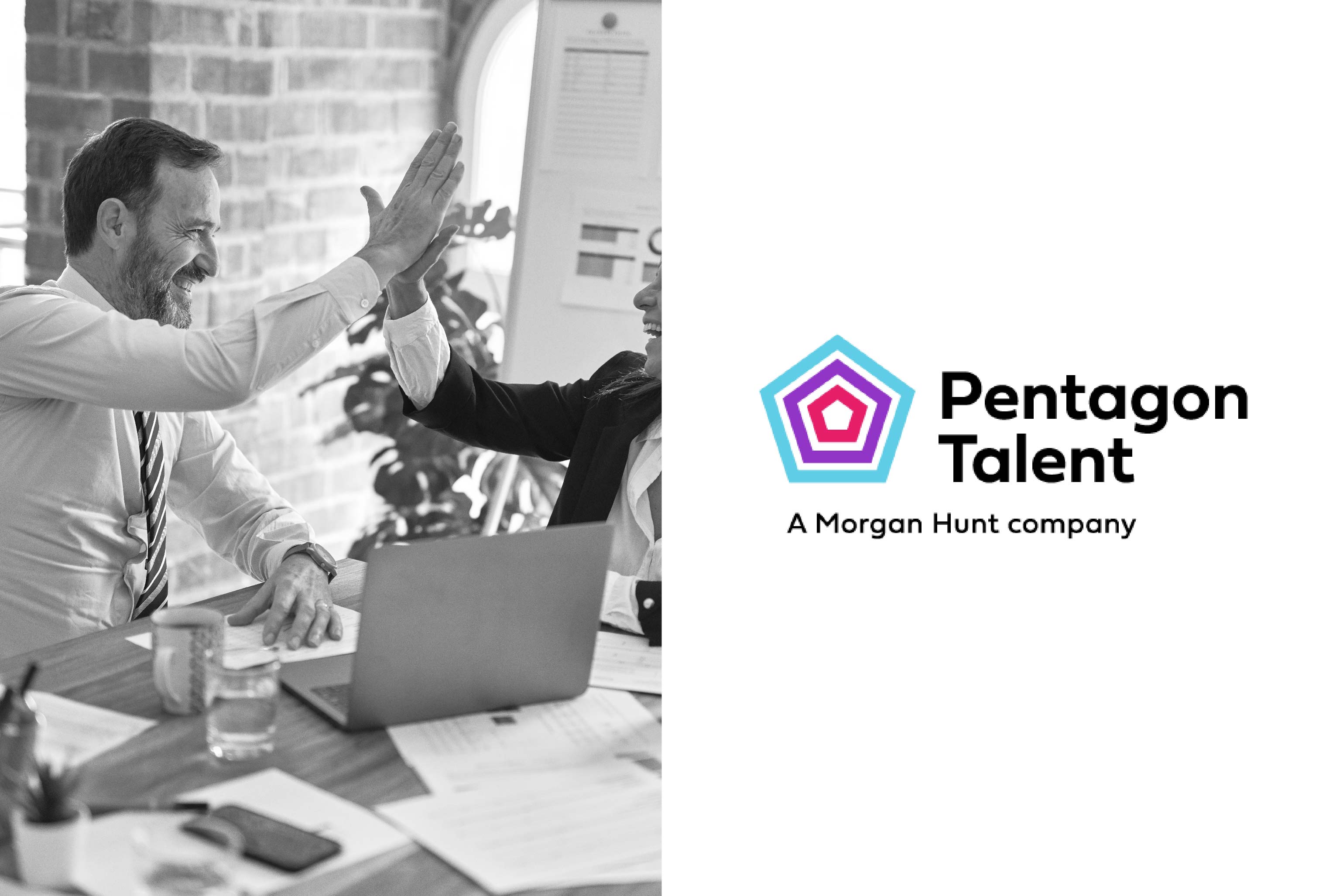News & Views

14 Ways to Create an LGBTQ+ Inclusive Workplace in 2024
Fostering inclusivity is not just a choice; it’s the right thing to do, and it also makes business sense too. Creating an environment where everyone, regardless of their sexuality, feels accepted and valued is crucial for the success and well-being of both employees and the organisation as a whole. In this blog post, we'll explore practical steps to make your workplace more LGBTQ+ inclusive, embracing the principles of respect, understanding, and teamwork.
Importance of Inclusivity
Inclusivity is not just a buzzword; it's a cornerstone for a thriving and successful workplace. Embracing diversity, including individuals of all sexual orientations and gender identities, contributes significantly to an organisation's innovation, creativity, and overall success. When employees feel valued for who they are, irrespective of their background, they bring their authentic selves to work, leading to increased engagement and productivity. Inclusive workplaces also foster a sense of belonging, reducing turnover and attracting top talent. Moreover, an inclusive environment encourages diverse perspectives, which is vital for problem-solving and decision-making. By prioritising inclusivity, organisations not only create better working environments for their employees but also position themselves as socially responsible and forward-thinking entities.
Understanding the current landscape of diversity and inclusion in the UK workplace is essential for driving positive change. According to a study by Stonewall, a leading LGBTQ+ rights organisation:
- More than a third of LGBT staff (35%) have hidden that they are LGBT at work for fear of discrimination.
- Almost two in five bi people (38%) aren’t out to anyone at work about their sexual orientation, compared to seven per cent of gay men and four per cent of lesbians.
- One in four trans people (26%) aren’t open with anyone at work about being trans. This number increases to about two in five non-binary people (37%) who aren’t out at work.
- Almost one in five LGBT staff (18%) have been the target of negative comments or conduct from work colleagues because they’re LGBT.
- Almost one in five LGBT people (18%) who were looking for work said they were discriminated against because of their identity while trying to get a job.
These statistics underscore the need for continuous efforts in creating inclusive workplaces where all employees feel accepted, supported, and free to be themselves. By addressing these challenges, organisations can take meaningful steps towards building a truly inclusive culture that reflects the diverse tapestry of the workforce in the UK.
14 Practical Steps to Foster LGBTQ+ Inclusivity
So how can organisations promote inclusivity? We have put together our 14 practical steps to foster LGBTQ+ Inclusivity.
- Recognise that Identities are Complex
Everyone is different. Make sure to set some time aside to get to know your current team and any new starters, this creates a safe space for them to share who they really are and share any issues they’re experiencing.
- Don’t Expect Anyone to ‘Out’ Themselves
Being ‘Out’ at work is a choice that each individual should feel comfortable to make for themselves. Many people won’t feel safe or comfortable outing themselves at work, so design your programmes to include people, whether they are ‘out’ are not.
- Educate and Raise Awareness
Start by fostering a culture of awareness. Provide educational resources that help employees understand the diversity within the LGBTQ+ community. Simple workshops or presentations can go a long way in dispelling myths and stereotypes, promoting empathy and understanding.
- Inclusive Language
Language matters Encourage the use of inclusive language that respects diverse identities. Be mindful of gender pronouns and create an environment where individuals feel comfortable expressing their preferred pronouns without fear of judgment.
Inclusive Terms
- Hi all, folks, team, friends, team, everybody, everyone, or specific terms like customers, clients, employees
- Invite your partners, spouses to the event
- Chair, chairperson, door attendant, bartender, server etc
- Humankind
- Best person for the job
- The person in the green shirt
- Sexual orientation, sexuality
- Gender identity
- Trans, trans person, transgender person, trans man, trans woman
Non Inclusive Terms
- Hi guys, ladies, gentlemen
- Invite your boyfriend, girlfriend, husband, wife to the event
- Chairman, doorman, barman, barmaid, waiter, waitress etc
- Mankind
- Best man for the job
- The man in the green shirt
- Sexual preference
- Sex, specifically mistaking sex for gender
- Transgendered, transwoman, transman
- Decided to be/become a man or woman
- Normalise Pronouns
Including the option to had pronouns in your email signatures and various platforms your organisation use is an important move towards inclusivity. As mentioned, this should be optional, as not everyone will feel comfortable sharing their pronouns. Not everyone will feel comfortable sharing their pronouns. You could say something like:
“Anyone who wants to add their pronouns to their email signature is welcome to. Adding these words helps make it clear that we respect each other’s gender identities and normalise conversations about gender.”
You can display pronouns in Teams Profiles, Slack profiles, Zoom participant names, staff bios, HR and payroll software etc.
- Celebrate Diversity
Celebrate different cultural events and observances related to the LGBTQ+ community. Acknowledge Pride Month or other relevant occasions by organising events, displaying inclusive decorations, or even sharing stories of LGBTQ+ individuals within the organisation. This not only promotes awareness but also helps create a sense of belonging.
- Establish Support Networks
Consider setting up support networks or affinity groups within the workplace. These groups provide a platform for employees to connect, share experiences, and offer support. This fosters a sense of community and shows that the organisation values and encourages diversity.
- Inclusive Policies
Review and update existing policies to ensure they are inclusive and supportive of LGBTQ+ employees. This includes non-discrimination policies, healthcare benefits, and family leave policies. Communicate these policies clearly to all employees to ensure everyone is aware of their rights and feels supported.
- Lead by Example
Leaders play a pivotal role in shaping company culture. Encourage leaders to lead by example, embracing diversity and inclusivity in their daily interactions. When employees see leadership actively promoting an inclusive environment, it sets a powerful precedent for the entire organisation.
- Foster a Safe Space
Create a workplace where individuals feel safe to be themselves. This involves addressing any instances of discrimination promptly and effectively. Implement reporting mechanisms and ensure that employees trust the process, knowing that their concerns will be taken seriously.
- Continuous Training and Development
Implement ongoing training programs to keep employees informed about evolving diversity and inclusion issues. Equip them with the tools to challenge biases, stereotypes, and discriminatory behaviours. This proactive approach ensures that inclusivity remains a fundamental aspect of the organisational culture.
- Intersectionality Matters
Recognise that individuals may belong to multiple marginalised groups, and their experiences are shaped by the intersection of these identities. Embrace an intersectional approach to inclusivity, acknowledging the unique challenges faced by employees who belong to both the LGBTQ+ community and other marginalised groups.
- Employee Resource Groups
Encourage the formation of Employee Resource Groups (ERGs) specific to the LGBTQ+ community. ERGs provide a platform for networking, mentorship, and advocacy within the organization. They also serve as valuable channels for feedback and insights on creating a more inclusive workplace.
- Know that there’s no Quick Fix
There’s no button you can press for instant LGBTQ+ inclusion. It’s an ongoing, ever-evolving journey towards a more inclusive future. Similarly, there is no one template for a perfectly LGBTQ+ inclusive workplace. Inclusivity should be seen as both a process and a goal, rather than a quick fix.
Building a more LGBTQ+ inclusive workplace is not just a goal; it's a journey. By embracing diversity, promoting understanding, and fostering a sense of belonging, organisations can create environments where everyone can truly thrive. Remember, it's not about meeting quotas; it's about inspiring working lives by making every employee feel valued, respected, and included. As we take these steps together, we pave the way for a future where workplaces reflect the rich tapestry of the diverse and vibrant communities we serve.
If you and your organisation would like further advice on how to build an inclusive workplace for the LGBTQ+ community, or any diverse group for that matter, reach out us at info@morganhunt.com. You can find out more about Morgan Hunt’s Diversity and Inclusion work here: www.morganhunt.com/pages/diversity-and-inclusion
Financial Wellbeing in the Workplace
In today’s current climate, especially when taking into consideration the cost-of-living-crisis, companies are increasingly recognising the importance of fostering financial wellbeing among their employees. Financial stress can significantly impact an individual's overall well-being, leading to reduced productivity, increased absenteeism, and a decline in job satisfaction.
How are our finances and mental health linked?
The intricate connection between finances and mental health is a well-established reality. In the UK, individuals facing financial challenges often experience heightened levels of stress, anxiety, and even depression. The burden of debt, the pressure to make ends meet, and the uncertainty surrounding future financial stability can take a toll on one's mental and emotional well-being. This intersection is particularly significant in the workplace, as financial stress can permeate into professional life, impacting focus, decision-making, and overall job satisfaction. Recognising this interplay is crucial for employers aiming to create a supportive and thriving work environment.
Why should employers be concerned about the financial wellbeing of their staff?
Employers should have a vested interest in the financial wellbeing of their staff, as it directly correlates with the overall health of the organisation. Financially stressed employees are more likely to experience decreased job satisfaction and engagement, leading to lower productivity levels. The impact is not confined to the individual; it ripples through the entire workplace, affecting team dynamics and organisational culture. High levels of financial stress can contribute to increased absenteeism and employee turnover, in turn, elevating recruitment and training costs.
Moreover, businesses that prioritise the financial wellbeing of their employees are more likely to attract and retain top talent, fostering a positive reputation and competitive edge in the job market. In essence, the financial health of employees is intricately tied to the success and sustainability of the business, making it a strategic imperative for employers to proactively address and support the financial wellbeing of their workforce.
How can you help as an employer?
Employers have the power to improve both the financial and mental wellbeing of their workforce, as well as their productivity, by introducing new processes or resources that build financial resilience, creating a culture of support and providing essential help once problems have set in.
- Financial Education Programs
Results from the Family Resources Survey (FRS) for the financial year 2020 to 2021, reported one in seven UK families reported having no savings. Highlighting the need for comprehensive financial education programs.- Provide employees with resources and workshops on budgeting, saving, and investing.
- Offer seminars on topics like debt management, retirement planning, and financial goal setting.
- Comprehensive Benefits Packages
- Include financial wellness benefits in employee packages, such as retirement plans, health savings accounts (HSAs), and access to financial advisors.
- Consider offering flexible work arrangements to help employees balance work and personal financial responsibilities.
- Employee Assistance Programs (EAPs)
A survey by the Mental Health Foundation found that almost one third (31%) of UK adults have felt anxious in the past month due to their personal financial situation.- Implement EAPs that address not only mental health but also financial stress.
- Provide confidential counselling services for employees facing financial challenges.
- Salary Transparency and Fair Compensation
- Foster an open dialogue about compensation, ensuring that employees understand their salary structure and benefits.
- Regularly review and adjust salaries to align with market standards and employee contributions.
- Promotion of Work-Life Balance:
- Encourage a healthy work-life balance to prevent burnout and reduce the temptation of seeking additional income through multiple jobs.
- Offer paid time off and flexible scheduling options.
- Debt Relief and Assistance
The Money Charity reported that, as of January 2022, the average total debt per UK household, including mortgages, was £63,122., emphasising the importance of debt management.- Explore partnerships with financial institutions to offer low-interest loans or debt consolidation programs for employees facing financial strain.
- Provide information on debt management and resources to help employees navigate financial challenges.
Benefits of Prioritising Financial Wellbeing
- Improved Productivity
Employees experiencing reduced financial stress are more likely to be focused and engaged at work.
- Enhanced Employee Loyalty
Companies that actively support their employees' financial wellbeing create a sense of loyalty and commitment.
- Reduced Absenteeism
Financially healthy employees are less likely to miss work due to stress-related illnesses.
- Positive Company Culture
Prioritising financial wellbeing fosters a positive culture that cares for its employees beyond their professional contributions.
Promoting financial wellbeing in the workplace is not just a moral imperative but also a strategic investment in the success and sustainability of a company. By implementing thoughtful initiatives, companies can empower their employees to achieve financial stability, leading to a more engaged, productive, and satisfied workforce. As we move forward, let us recognise that the health of a business is intricately tied to the financial health of its employees.


Elevating Legal Recruitment in the UK: The Critical Role of Timely Candidate Feedback
In the competitive realm of the UK's finance legal sector, the quest for top-tier talent remains a perpetual challenge. Amidst this pursuit, one often underestimated yet pivotal aspect of the recruitment process is the timely provision of feedback to candidates. This element stands as a linchpin that can significantly influence the candidate experience and shape the reputation of law firms across the UK.
Understanding the Weight of Timely Feedback
Enhancing Candidate Experience: The legal finance profession is built on precision and attention to detail. Therefore, providing timely feedback demonstrates respect for candidates' diligence and dedication. Swift updates keep candidates engaged, informed, and more inclined to view your firm positively.
Empowering Informed Decisions: Timely feedback empowers candidates to assess their performance and align themselves better with the expectations of UK law firms. It also equips hiring teams with crucial insights, enabling more informed decisions and the flexibility to refine selection criteria as necessary.
Strengthening Employer Reputation: In an industry reliant on reputation and credibility, timely feedback reinforces a firm's commitment to professionalism and fairness. Positive candidate experiences contribute significantly to bolstering a firm's employer brand, attracting top legal finance talent across the UK.
Efficiency in Recruitment Processes: Delays in feedback provision can impede the pace of the recruitment process. Timely communication ensures a smoother recruitment cycle, reducing time-to-fill and minimizing the risk of losing exceptional candidates to competitors.
Cultivating a Culture of Timely Feedback
To maintain the UK legal sector's reputation for excellence, fostering a culture of timely feedback within the recruitment process is paramount. Implementing structured feedback mechanisms, setting clear communication timelines, and ensuring all stakeholders recognise the value of prompt updates can yield significant improvements.
In summary, the impact of timely feedback on the candidate experience within the UK's legal finance market cannot be overstated. It plays an instrumental role in shaping a positive, respectful recruitment journey and forging stronger connections between law firms and perspective talent. Make a commitment to making timely feedback a fundamental practice within legal finance recruitment in the UK. By prioritising effective communication and prompt updates, you fortify your ability to attract, engage, and retain top finance professionals, further solidifying your position as leaders in the UK's legal landscape.
Revolutionising Finance: How AI is Transforming Accountancy Firms
ChatGPT is the brainchild of the artificial intelligence research company OpenAI. When ChatGPT launched in November 2022, it revolutionised the technology world overnight. Industries started embracing it, from healthcare to finance. An EY study has found that 84% of CEOs and business leaders in the US see AI as an essential driver of their companies’ success.
This article looks at how accounting firms are applying AI to their business processes. We explore both the benefits and limitations.
How is AI used in accountancy firms?
Accountancy firms are turning to automation to streamline manual processes. This includes gathering signatures, routing, analytics, data entry, reconciliations, and financial reporting. Automation eliminates repetitive tasks and automates steps in areas such as bookkeeping and tax preparation. Staff members can shift their focus towards value-added work and concentrate on strategic elements like financial analysis, forecasting, and decision-making.
Modern technology is helping the accounting sector evolve. From automating administrative tasks to analysing complex data, accounting firms are using AI to stay ahead of the competition. AI helps different areas of accounting, including data analysis, financial forecasting, and detecting fraud.
AI can perform complex calculations. It can also process large amounts of data and identify patterns, trends, anomalies, and outliers. Tasks such as auditing, tax preparation, and compliance can be improved.
AI can use historical data and external factors to predict future outcomes. It can adjust forecasts based on real-time data and feedback. Tasks such as budgeting, planning, cash flow management, and risk assessment can become easier.
A growing area in the world of finance is fraud. Here, AI has real benefits; it can detect and prevent fraud by analysing transactions and behaviours. This means that accountants and auditors can be alerted to suspicious or unusual activities. This is beneficial for tasks including forensic accounting, internal control, and assurance.
AI in auditing
Accounting firms with an auditing function or department may benefit from a more comprehensive and efficient audit process with AI in their toolkit.
AI can assist in auditing processes. There are different uses of AI in auditing. One such use is gaining greater insight from data. AI can analyse vast datasets quickly and accurately, identifying unusual patterns or anomalies that may indicate fraud, errors, or non-compliance. AI can also perform advanced statistical analysis to assess risk and prioritise audit tasks.
AI in tax
The Thomson Reuters ChatGPT and Generative AI survey conducted in May 2023, found that 73% of tax professionals acknowledge the tech can be used for tax, accounting, and audit work, yet only about half think that it should be.
ChatGPT has been trained on the US tax code, and it can answer complex tax questions in a matter of seconds. Its answers aren’t always correct and could mislead people. There are expectations that ChatGPT’s performance will improve as it learns.
A main objection by tax professionals to using ChatGPT currently is that, while it may be useful for tax research, it struggles with complex tax questions. They have pointed out that tax rules are not black-and-white. Often, tax work takes place in the grey areas, where human interpretation is required.
It is only a matter of time before accountancy firms and tax departments include ChatGPT and generative AI skills as a job requirement for new hires.
AI and the Big Four
The accounting and finance industry is adapting to AI to get ahead of its competition. The Big Four accounting firms of Deloitte, PwC, KPMG, and EY are embracing AI with artificial intelligence initiatives. They are investing in them for long-term gains.
AI at Deloitte
A Deloitte article broke down AI technologies into three categories. This included 'product', where AI is embedded into the product or service to provide end-customer benefits. 'Process', whereby AI technology is streamlined into daily workflow to automate and increase productivity. Finally, ‘insight’ where AI makes informed and strategic decisions to provide targeted advice to a company. Deloitte’s AI-related initiatives seem to fall into the ‘process’ and 'insight' categories. In June 2020, Deloitte launched an AI research centre, integrating AI into its offerings to support client transformations.
AI and PwC
In April 2023, it was reported that PwC dedicated $1 billion to expand AI capabilities. This includes accessing ChatGPT maker OpenAI’s language model and training staff in AI capabilities. PwC will develop and embed generative AI into its technology stack and client-services platforms. It is also believed that the Big Four firm will also advise other companies on how to use generative AI.
AI and KPMG
This Big Four firm is using AI to spot trends, predict outcomes, and analyse huge volumes of data. In July 2023, KPMG announced they were entering a landmark agreement with Microsoft to put AI at the forefront of professional services. The industry-leading collaboration between the two includes a KPMG multibillion-dollar commitment to Microsoft Cloud and AI services over the next five years. It is expected that it will help unlock a potential incremental growth opportunity for KPMG of over US$12 billion.
EY and AI
EY has launched EY.ai, a unifying platform that brings together human capabilities and artificial intelligence. EY has also developed a large language model called EYQ, a conversational AI assistant that helps EY people harness the power of natural language processing (NLP). The firm has invested $1.4 billion in AI strategy, tools, and training. The investment covers areas such as data and analytics, intelligent automation, computer vision, machine learning, and generative AI. They plan to train all their employees on workplace AI.
Problems with AI
AI systems today are powerful and are improving all the time. They provide outputs that can be accurate, replacing and, sometimes, superseding human endeavours. As of yet, they do not replicate human intelligence.
There are data limitations. While this is seldom an issue for large accountancy practices, smaller accounting firms may collect insufficient amounts of data to build models around some areas for analysis. For small accountancy practices collecting and housing data can be expensive and time-consuming. It might mean the integration of new systems and the establishment of key processes.
The future of AI in accounting firms
It is impossible to predict the extent to which AI will replace human decision-making over the coming decades. There is much more to be debated about security as well as ethics. Economic, social, and political factors also contribute to the future of AI. Future AI technology will also be different from what we see today. As a result, accountancy firms need to take a flexible approach when thinking about how AI will work in the future.


Empowering Working Mums: The Role of Flexible Working
The role of women in the workforce has evolved dramatically over the past few decades. Gone are the days when women were primarily relegated to the role of homemakers. Today, women make up a significant portion of the global workforce, juggling their professional and family responsibilities.
For working mothers, in particular, the challenge of balancing work and family life is a delicate tightrope act. Recent statistics highlight this.
- The gender pay gap remains a significant issue, with women earning approximately 14.3% less than men, highlighting the urgency for equitable opportunities.
- The average weekly cost of a full-time nursery place in Great Britain was 285.31 British pounds for under twos. These high childcare costs make flexible working arrangements essential for many working mothers who need to manage both their careers and family responsibilities.
- 65% of working mums feel there are fewer career opportunities available to them since maternity leave.
Flexible working arrangements emerged as a lifeline for working mums, providing them with the much-needed flexibility to excel in both their careers and family life.
Hear From Working Mum’s at Morgan Hunt Group
We've reached out to working mums within the Morgan Hunt Group team to hear from them about their experiences. Their insights shed light on the unique challenges they face and how flexible working has become an essential tool in their journey to success.
Kirsty Stoddart – Senior Business Manager
In her own words, Kirsty Stoddart sheds light on how flexible working has transformed her work-life balance:
"In terms of flexible working I would say the working pattern I have at the moment really helps with my family life. The fact that I finish at 3pm every day gives me time to see the kids after school and get organised for after school clubs etc without having my head in the laptop at the same time! And when I asked just a few months ago to change my working pattern, it didn’t seem to be an issue to the company or my manager."
She also underscores the crucial role of her manager, Gillies, in supporting her:
"I know it is Morgan Hunt as a company that offers the flexible working, but also I would say the backing I get from Gillies is a massive help too as he is always understanding when 'life' happens and you need to reorganise work, etc."
Kirsty also touches upon the pressure she places on herself as a part-time worker:
"The only other thing I would add is that with working part-time, it is a pressure to achieve and do all parts of your role the same as a full-time member of staff. Not necessarily that anyone is putting pressure on me, but more me putting it on myself if that makes sense!"
Amie Day – Business Manager
Amie Day shares her own challenges as a working mum:
"I have 2 children – 4 years and 2 years old and I find having a career and being a mum very hard and challenging. But Morgan Hunt have made it easier for me by allowing me to work remotely and work 4 days a week so it gives me the time to be at home and flexibility to be there for my children should I need to. It also allows me to manage my own workload and work to suit me and my family."
She emphasises the importance of understanding and support:
"This job is very pressurised and busy, especially being in education at the busiest time of year but having a great manager who is a father himself, he manages to see it through my eyes too. I think more people need to be understanding that not only do we do a good job, but we are a mum to very demanding little people. You need a good team network and support around you who are understanding and considerate."
Annabelle Walster – Business Manager
Annabelle Walster recounts her experience of returning to work after having her second child:
"Returning to work after having my second child was a real shock to the system! It’s difficult to juggle the demands of being a mum whilst still being successful in your career. I am lucky to have had the support of my team in Manchester and in particular my Director, Eliot who has made retuning to work a whole lot easier with his support and understanding he has given me"
She goes on to explain how flexible working has helped her:
"Being able to work in a flexible way has helped me immensely! Living quite a distance from the office, working from home 3 days per week means I get to spend quality time with the children in the evening, something which wouldn’t have been possible before we worked flexibly due to the commute."
Annabelle highlights the challenges of working part-time in a demanding industry:
"Although for me, working 4 days a week is a huge positive, it does present challenges when working in a demanding industry such as recruitment. Having a work from home set up means I can overcome these challenges and speak to my candidates and clients outside typical working hours to ensure my business still runs smoothly!"
Challenges and Future Developments
Women in the UK are putting in more time at work than ever before thanks to flexible and hybrid working policies that sprang up during the pandemic, an analysis of official data by Bloomberg shows. However despite the numerous benefits of flexible working, challenges remain.
There has been a push to return more workers into the office, which risks undercutting a surge in the hours the women spend on the job.
- Amazon has issued a warning to staff who are not spending at least three days a week in the office, with Meta releasing a similar statement.
- Zoom has asked employees to come in for at least two days a week.
Hybrid working, such as coming into the office two to three days a week, doesn’t necessarily fall into the flexible working bracket and can bring huge benefits including improved collaboration and enhanced team dynamics. It’s important to strike the right balance and understand the nuances of hybrid and flexible working and what works for the individual.
The concern is that this shift back to the office may affect women disproportionately. The pandemic had increased men's involvement in household responsibilities as more of them worked from home. However, the return-to-office mandates by companies could undermine this progress, creating conflict in two-career households. The reduced flexibility that comes with a return to the office may lead to a less equitable division of household tasks, which in turn can impact equality at home and work. It's a reminder that the benefits of flexible working go beyond gender equality and are vital for a diverse and inclusive workforce.
The Benefits of Flexible Working for Working Parents
- Improved Work-Life Balance: Flexible working arrangements empower working parents to better balance their career and family commitments.
- Reduced Stress: With more control over their schedules, working parents can reduce stress and burnout, leading to better mental and emotional well-being.
- Enhanced Job Loyalty: Offering flexible work options can lead to increased loyalty from working parents, as they appreciate the support provided by their employers. 9 in 10 parents said they would feel more loyal to an employer who offered them flexible working opportunities.
- Career Progression: Flexible working doesn't have to mean sacrificing career ambitions. Many organisations support and promote working parents, helping them advance professionally.
- Increased Productivity: Studies have shown that employees with flexible working arrangements often report higher productivity and job satisfaction. 9 in 10 employees consider flexible working to be a key motivator to their productivity at work.
Working mums are a vital part of the modern UK workforce, and their contributions should be celebrated and supported. Flexible working arrangements provide a lifeline to working mothers, allowing them to excel in their careers while still being there for their families. As society continues to evolve, it's crucial for businesses and policymakers to prioritise and promote flexible working options.
Empowering working mums is not just a matter of gender equality; it's a smart investment in a happier, healthier, and more productive workforce, and a step toward addressing the gender pay gap. If you'd like further advice or guidance, don't hesitate to reach out to us at info@pentagontalent.com.
5 Ways to Create a Neuroinclusive Workplace
In an increasingly diverse and inclusive world, companies are becoming more aware of the value of different perspectives and unique talents that neurodiverse employees bring to the table. Neurodiversity refers to the range of neurological differences that encompass conditions like autism, ADHD, and dyslexia, among others. To harness the full potential of neurodiverse employees, businesses are recognising the importance of creating neuroinclusion office designs. These environments are not only beneficial for employees with neurological differences but also contribute to a more innovative, creative, and dynamic work culture.
The Importance of Neuroinclusion Office Design
Neuroinclusion office design goes beyond physical spaces; it encompasses a culture of acceptance, respect, and support for neurodiverse employees. Here are some key reasons why it is important:
- Enhanced Productivity
A well-designed neuroinclusion office can improve the productivity of neurodiverse employees. In the UK, where approximately 1 in 100 people are on the autism spectrum, a study found that accommodating neurodiversity can lead to increased productivity and business performance.
- Talent Attraction and Retention
Creating an inclusive workspace signals to potential hires that your company values diversity and inclusion. This is crucial in the UK, where only 22% of autistic adults are currently in any kind of paid employment. An inclusive workplace can help retain neurodiverse employees, reducing turnover and the costs associated with hiring and training new staff.
- Increased Innovation
Neurodiverse individuals often possess unique skills and perspectives that can contribute to innovative problem-solving and creativity. By fostering a neuroinclusion office design, the UK workplace can tap into this potential and lead to more innovative solutions and ideas.
- Compliance with Legal Standards
In the UK, the Equality Act 2010 protects employees and job applicants from discrimination on the grounds of disability. A neuroinclusion office design demonstrates a commitment to compliance and social responsibility.
- Positive Public Image
90% of the British public believes that employers should do more to support neurodiverse individuals. Companies that champion neuroinclusion gain a positive reputation, attracting customers and partners who appreciate diversity and inclusive business practices.
The Benefits of Neurodiverse Employees
Neurodiverse employees bring a unique set of skills and perspectives to a team. Recognising and harnessing these benefits can lead to a more dynamic and high-performing workplace:
- Attention to Detail
Some neurodiverse individuals have an exceptional ability to focus on intricate details, making them invaluable for tasks that require precision, quality control, and pattern recognition.
- Creative Problem-Solving
Neurodiverse individuals often approach problems from unconventional angles, thinking "outside the box." This innovative thinking can lead to breakthrough solutions and ideas.
- Reliability and Consistency
Many neurodiverse employees excel in routines and can be relied upon to deliver consistent and high-quality work.
- Diverse Perspectives
Embracing neurodiversity enriches your team with a broader range of perspectives, leading to more robust decision-making and problem-solving.
Creating a Neuroinclusion Office Design
To create a neuroinclusion office design in the UK, consider the following strategies:
- Sensory-Friendly Spaces
Design areas that cater to a variety of sensory needs. This includes quiet rooms for focus, adjustable lighting, noise-cancelling headphones, and comfortable furniture.
- Flexible Workstations
Allow for flexibility in desk arrangements, giving employees the option to choose an environment that suits their needs.
- Clear Communication
Implement clear communication strategies, such as visual schedules, to facilitate understanding and reduce anxiety for neurodiverse employees.
- Training and Awareness
Provide training for all employees to raise awareness about neurodiversity and create a supportive workplace culture.
- Reasonable Accommodations
Offer individualised accommodations to support the specific needs of neurodiverse employees. These may include flexible work hours, assistive technologies, or ergonomic adjustments.
In conclusion, neuroinclusion office design is a critical aspect of fostering a diverse, inclusive, and innovative workplace in the UK. By recognising the value of neurodiverse employees and creating an environment that supports their unique needs, companies can harness the full potential of their teams, improve productivity, and contribute to a more inclusive and equitable future for all employees.
If you want further advice on how to support your neurodiverse employees, contact us at info@morganhunt.com.


6 Ways for Employers and Employees to Engage with Pensions Amid the Cost-of-Living Crisis
The cost-of-living crisis continues to weigh heavily on individuals, forcing a re-evaluation of retirement plans for many. Recent research by WEALTH at work has uncovered concerning statistics: a staggering eight in 10 employees (83%) are worried that the cost-of-living crisis will necessitate working longer before they can comfortably retire.
To cope with immediate financial pressures, some have resorted to reducing or ceasing their pension contributions altogether (13%), while nearly three in 10 (29%) contemplate discontinuing payments in the future, and one third (30%) are considering reducing future contributions.
In the face of these alarming numbers, both employers and employees must take proactive steps to engage with pension planning. In this blog post, we'll explore ways to engage with pensions amid the cost-of-living crisis, offering strategies to navigate current financial challenges and secure a more stable retirement.
For Employers
-
Transparent Communication
Employers should proactively address employees' concerns about the cost of living and its impact on retirement savings. Provide regular updates and educational materials explaining the importance of consistent pension contributions. -
Offer Educational Programs
Employers can introduce educational programs that include guidance on managing expenses, budgeting, and debt reduction. These programs can help employees alleviate immediate financial pressures and free up resources for retirement savings. -
Flexible Pension Contribution Options
Consider offering flexible pension contribution options that allow employees to adjust their contributions based on their current financial situation. This can help employees continue saving for retirement even during challenging times. -
Encourage Early Engagement
Encourage employees to engage with their pensions early in their careers. Emphasise the benefits of compound interest and how even small contributions over time can make a substantial difference in retirement savings. -
Investment Diversification
Educate employees about the importance of a diversified investment portfolio within their pension plan. A well-balanced portfolio can potentially mitigate the impact of market volatility and boost long-term returns. -
Professional Guidance
Provide access to financial advisors, these experts can help employees navigate the current financial landscape, make informed decisions, and set realistic retirement goals.
For Employees
In these times of rising living costs and financial uncertainty, employees have a vital role to play in securing their retirement. Here are some proactive steps individuals can take:
-
Assess Your Financial Situation
Start by taking a close look at your current financial situation. Create a budget to understand your income, expenses, and areas where you can potentially cut back. Knowing where your money is going is the first step towards making informed financial decisions. -
Employer Matching
If your employer offers a pension plan with a matching contribution, take full advantage of it. It's essentially free money that can boost your retirement savings. Contribute at least enough to receive the maximum employer match. -
Educate Yourself
Take the initiative to educate yourself about your pension plan. Understand the investment options available, the fees involved, and the potential for growth over time. Ask your employer for educational resources or attend pension webinars. -
Review and Adjust Your Portfolio
Regularly review your pension portfolio to ensure it aligns with your long-term goals and risk tolerance. Adjust your investments as needed to respond to changes in your financial situation or market conditions. -
Control Lifestyle Inflation
As your income grows, be cautious about lifestyle inflation. Rather than increasing your spending with each pay raise, consider allocating a portion of the extra income toward retirement savings. -
Develop an Emergency Fund
To avoid dipping into your retirement savings during unexpected financial crises, build an emergency fund. Having a cushion for unforeseen expenses can help protect your long-term retirement goals.
In the face of the cost-of-living crisis, it's crucial for both employees and employers to take proactive steps to secure their financial future. By making informed decisions, maintaining a focus on retirement savings, and seeking guidance when needed, individuals can navigate these challenges and work towards a more secure retirement. Employers also have a significant role to play in providing resources, education, and flexible pension options to support their workforce in these uncertain times.
Remember that your retirement is ultimately in your hands, and every effort you make today, as both an employee and employer, can have a positive impact on your future financial well-being.
Find further career advice articles here: www.morganhunt.com/career-advice
Navigating the Flexible Working Bill: A Guide for Employers
In a revolutionary move that embraces the changing landscape of work, the Flexible Working Bill officially became law in July 2023, empowering employees to seek greater flexibility in their work arrangements (the new rules will likely come into effect in 2024).
For employers, this legislation signals a paradigm shift in how teams operate, compelling them to adapt and accommodate the evolving preferences of their workforce.
The Birth of the Flexible Working Bill
Originally proposed by MP Yasmin Qureshi, the Flexible Working Bill, also known as the Employment Relations Act, signifies a landmark step toward redefining traditional work norms. The bill offers employees the autonomy to determine when, where, and how they work, a transformation that has been accelerated by recent shifts in work patterns.
Understanding the Key Changes
- Immediate Requests: Unlike previous norms, the new legislation empowers employees to submit flexible working requests from the very first day of employment, amplifying their control over their work-life balance.
- Consultation and Justification: Employers are now mandated to engage in dialogue with employees before rejecting a flexible working request. This move ensures that all parties understand the reasoning behind decisions and fosters a culture of transparency.
- Frequency of Requests: Employees can make up to two flexible working requests within a 12-month period, providing them with opportunities to adapt their arrangements as their circumstances evolve.
- Response Time: Employers are required to respond to these requests within two months, streamlining the decision-making process and allowing employees to plan their work lives more effectively.
- Impact Assessment: Unlike previous requirements, employees no longer need to predict how their flexible work request might affect their employer. This shift alleviates pressure on employees and allows employers to consider requests without anticipating potential disruptions.
Preparing for a Flexible Future: Employer Responsibilities
Embracing the Flexible Working Bill involves more than just compliance; it's about cultivating a work environment that promotes employee well-being, productivity, and inclusivity. Here's how employers can proactively navigate this new terrain:
- Education and Communication: Familiarise your team with the implications of the bill. Encourage open conversations about flexible working options, addressing any concerns or misconceptions.
- Review and Revise Policies: Update your company policies and procedures to align with the new legislation. Establish clear guidelines for processing and responding to flexible working requests.
- Infrastructure and Technology: Ensure your organisation has the necessary technological infrastructure to facilitate remote work and flexible arrangements. Invest in communication tools, project management software, and cybersecurity measures to support a dynamic work environment.
- Training for Managers: Equip your managers with the skills needed to handle flexible working requests effectively. Provide training on managing remote teams, assessing performance based on outcomes, and fostering a culture of trust.
- Evaluate Job Roles: Review existing roles to identify positions that could benefit from flexible arrangements. Assess the feasibility of job-sharing, remote work, compressed workweeks, and other alternatives.
The Benefits of Embracing Flexibility
While the Flexible Working Bill introduces new considerations for employers, it also offers a multitude of advantages that can enhance your business:
- Talent Acquisition: In an increasingly competitive job market, offering flexible work options positions your company as an attractive destination for top talent seeking work-life balance.
- Productivity and Well-Being: Research consistently shows that employees with flexible arrangements report increased job satisfaction, reduced stress, and improved mental well-being, leading to higher productivity and retention rates.
- Diversity and Inclusion: Flexible working can appeal to a diverse range of candidates, contributing to a more inclusive workforce and a broader talent pool.
- Adaptability and Resilience: Embracing flexibility fosters an agile work environment, enabling your business to navigate unexpected disruptions and market changes more effectively.
Possible Negatives to Consider
While the Flexible Working Bill brings forth a wave of positive changes, it's important for employers to also be aware of potential challenges that may arise:
- Team Cohesion and Communication: As employees adopt various flexible arrangements, there might be concerns about maintaining effective team communication and collaboration. A shift to remote work or differing schedules could lead to isolated team members or delays in information sharing.
- Performance Monitoring: Ensuring consistent performance evaluation and accountability can become complex in a more flexible work environment. Employers may need to establish new methods for assessing employee productivity and delivering feedback.
- Workload Distribution: Flexibility can sometimes result in an uneven distribution of work, especially if team members have different schedules or locations. Managers will need to implement strategies to ensure fair distribution and prevent overburdening certain employees.
- Data Security and Privacy: With remote work becoming more prevalent, there could be increased concerns around data security and privacy. Employers must ensure that remote work arrangements adhere to cybersecurity measures to protect sensitive information.
- Work-Life Boundaries: While flexible working can enhance work-life balance, it can also blur the lines between personal and professional life. Employees may find it challenging to disconnect from work when there are no clear boundaries between office hours and personal time.
- Business Continuity: In cases where multiple employees opt for flexible arrangements, businesses need contingency plans to manage potential disruptions. Adequate cross-training and communication protocols become crucial to maintain operations smoothly.
Understanding the potential negatives of the Flexible Working Bill is vital to proactively address and mitigate these challenges. By incorporating thoughtful policies, open communication, and strategic planning, employers can harness the benefits of flexibility while minimising any drawbacks.
As the Flexible Working Bill ushers in a new era of work dynamics, employers have a unique opportunity to reshape their workplaces and empower their teams. By embracing flexibility, you not only comply with the law but also foster a culture of trust, collaboration, and well-being that can drive your business to new heights. The future of work is flexible – it's time to embrace the evolution.


Revolutionising Recruitment: The Impact of AI
In an era defined by technological advancements, it comes as no surprise that artificial intelligence (AI) has made significant strides in transforming various industries. One such sector that has witnessed the impact of AI is recruitment, and the private sector is no exception.
As a private sector recruitment agency, we have closely observed the integration of AI into our processes, prompting us to delve into the realm of possibilities and contemplate its potential benefits and drawbacks. In this blog, we explore how AI could replace certain systems and discuss the pros and cons of employing this cutting-edge technology.
Replacing Traditional Systems with AI
- Candidate Sourcing and Screening
Traditionally, sourcing and screening candidates has been a time-consuming process that involves sifting through countless CVs and applications. With AI, however, automated systems can swiftly analyse CVs, extracting relevant information such as qualifications and experience. By leveraging AI, recruitment agencies can significantly reduce the time and effort required for candidate selection, thus improving overall efficiency. - Applicant Tracking Systems (ATS)
Applicant Tracking Systems have long been an integral part of the recruitment process, helping manage CVs, track candidate progress, and streamline communication. AI-powered ATS platforms can take this a step further by using natural language processing algorithms to identify keywords, match candidates to job descriptions, and even predict the suitability of an applicant for a particular role. Such advancements eliminate human biases and ensure fair and accurate evaluations. - Interviewing and Assessment
Conducting interviews and assessments is a crucial aspect of the recruitment process. AI has paved the way for video interviewing tools that employ facial and speech recognition algorithms to assess candidates. These systems can analyse facial expressions, tone of voice, and language patterns to gauge a candidate's suitability for a role. AI-powered assessment tools can also evaluate skills through gamified simulations or coding challenges, providing an objective and standardised evaluation.
Pros and Cons of AI in Recruitment
Pros
- Enhanced Efficiency: AI streamlines and automates various aspects of recruitment, saving time and resources. This allows private sector recruitment companies to focus on more strategic and value-added tasks.
- Improved Accuracy: AI eliminates human biases, ensuring fair evaluations based on merit and qualifications. This promotes diversity and inclusivity in the recruitment process.
- Enhanced Candidate Experience: AI-driven systems can provide candidates with real-time updates, personalised recommendations, and valuable feedback, fostering a positive experience throughout the hiring journey.
Cons
- Ethical Concerns: The use of AI in recruitment raises ethical considerations such as privacy, data security, and algorithmic biases. Recruitment agencies must navigate these challenges responsibly and ensure transparency in their processes.
- Lack of Human Touch: While AI brings efficiency, it may lack the human touch and intuition that can be valuable in assessing certain soft skills or cultural fit. Maintaining a balance between AI and human involvement is crucial to provide a comprehensive evaluation.
- Initial Investment and Training: Adopting AI technologies requires financial investment and staff training. Recruitment agencies need to carefully consider the cost-benefit ratio and allocate resources accordingly.
- Potential Bias Reinforcement: While AI has the potential to eliminate human biases, it can also perpetuate bias in the recruitment process. AI algorithms are only as unbiased as the data used to train them, and any dataset may contain implicit or explicit biases. If the historical data used to train the AI systems reflects biases present in society, such as gender or racial biases, the algorithms may inadvertently reinforce those biases.
The Future of AI in Recruitment
Looking ahead, AI has the potential to revolutionise the recruitment landscape even further. Here are a few areas where future AI advancements could bring significant changes:
- Predictive Analytics
AI-powered algorithms can analyse vast amounts of data to predict future workforce needs, identify skill gaps, and make proactive hiring decisions. This can assist recruitment agencies in better workforce planning and talent management.
- Chatbots and Virtual Assistants
AI-driven chatbots and virtual assistants can streamline the initial stages of candidate engagement, providing instant responses to frequently asked questions, scheduling interviews, and even conducting preliminary assessments. This can enhance the candidate experience and free up human resources for more complex tasks.
- Skill Development and Training
AI-powered platforms can identify skill deficiencies among existing employees and recommend personalised training programs. This proactive approach can help private sector organisations nurture talent from within and bridge skill gaps effectively.
AI has undoubtedly revolutionised the recruitment landscape, offering private sector recruitment companies a range of benefits. By automating processes, streamlining candidate selection, and improving accuracy, AI systems can significantly enhance efficiency and fairness in the recruitment process. However, it is essential to approach AI implementation with caution, addressing ethical concerns and striking a balance between technology and human involvement.
As the future unfolds, the integration of AI in recruitment will continue to evolve, shaping the ability to attract the best talent while upholding its core values of transparency and fairness. We are committed to staying at the forefront of technological advancements in the recruitment industry. If you're looking for an efficient, inclusive, and forward-thinking recruitment partner, contact us today at info@morganhunt.com
Embracing Menstruation and Menopause in the Workplace
At Morgan Hunt, we firmly believe in creating an inclusive and supportive workplace that values the well-being and empowerment of our employees. We want to shed light on two important and distinct issues affecting many individuals in the workforce: menstruation and menopause. By fostering open dialogue, offering flexible policies, providing access to necessary resources, and promoting education and awareness, we can create an environment where everyone feels respected and supported throughout these natural phases of life.
Despite the progress we have made in breaking down societal barriers, stigma surrounding menstruation and menopause still persists in many workplaces. This stigma often leads to silence, shame, and the suppression of conversations around these topics. Employees may feel hesitant to discuss their menstrual or menopausal experiences due to fear of judgment or discrimination. As employers, we have the power to challenge these stigmas by fostering an environment of acceptance and understanding. By openly acknowledging and addressing the stigma, we can create a workplace culture that promotes inclusivity, empathy, and support. Let's explore how employers can make a positive impact on menstruation and menopause in the workplace.
Menstruation in the Workplace
Menstruation is a normal part of many women's lives, and it is essential that we address the unique challenges it presents in the workplace. Here are some key considerations for supporting employees during menstruation:
- Open Dialogue
- By encouraging open conversations, we can reduce stigma and create an environment where employees feel comfortable discussing their needs and concerns.
- Foster open discussions through team meetings, one-on-one sessions, or anonymous suggestion boxes, allowing employees to voice their challenges, suggestions, and concerns without fear of judgment or embarrassment.
- Flexible Work Policies
- A majority (57%) of women in employment who suffer from period pain say it has affected their ability to work. By implementing flexible work policies, such as flexible working hours, remote work options, or the provision of personal leave, employers can help employees manage symptoms and prioritise their health during menstruation.
- Accessibility to Menstrual Products
- 12% of British women are affected by period poverty – a new survey, commissioned by ActionAid UK, has found that nearly one in eight women in Great Britain have struggled to buy menstrual products for themselves and/or a dependent. To support employees, provide easy access to menstrual products, such as tampons, pads, and menstrual cups, in workplace bathrooms. This shows that you acknowledge and care about their needs, promoting a more comfortable and inclusive environment.
- 12% of British women are affected by period poverty – a new survey, commissioned by ActionAid UK, has found that nearly one in eight women in Great Britain have struggled to buy menstrual products for themselves and/or a dependent. To support employees, provide easy access to menstrual products, such as tampons, pads, and menstrual cups, in workplace bathrooms. This shows that you acknowledge and care about their needs, promoting a more comfortable and inclusive environment.
Menopause in the Workplace
Menopause is a natural stage of life that can bring physical and emotional changes for women, and it is crucial that employers provide support during this transition. Here's how employers can support employees experiencing menopause:
- Open Dialogue
- The number of women who will experience menopause whilst in employment is increasing, there are currently around 4.5 million women aged 50–64 in employment. Encourage open conversations about menopause to reduce stigma and promote understanding among employees and managers.
- Create a safe and supportive space where employees feel comfortable discussing their menopause-related symptoms, concerns, and needs.
- Flexible Work Policies:
- One in ten women who worked during the menopause have left a job due to their symptoms. To accommodate their needs, consider implementing flexible work policies, such as flexible working hours or the provision of personal leave, allowing employees to manage symptoms and prioritise their well-being.
- Education and Awareness Programs:
- Eight out of ten women say their employer hasn’t shared information, trained staff, or put in place a menopause absence policy. Bridge this knowledge gap by hosting workshops or seminars that educate both employees and managers about menopause.
- Provide information about menopause and available resources, such as informative pamphlets or access to webinars, to promote understanding, empathy, and support.
As a recruitment company, it is our responsibility to advocate for inclusive workplaces that celebrate diversity and prioritise employee well-being. Menstruation and menopause are natural processes that affect a significant portion of the workforce. By actively supporting individuals during these stages of life, we foster a culture of inclusivity, empathy, and empowerment.
Let's challenge the status quo, break down barriers, and create an environment where menstruation and menopause are seen as normal and worthy of support. Together, we can build a workplace where all employees feel valued, respected, and empowered to achieve their full potential.
Remember, supporting individuals during menstruation and menopause is not just an act of kindness; it is a smart business decision that leads to a more engaged and productive workforce. Let's stand together and make a positive change in the way we approach these natural processes in the workplace. If you want further advice on supporting your employees who experience menstruation or menopause, reach out to us at info@morganhunt.com


WhatsApp Job Scams
Have you recently received a WhatsApp message from a recruiter who seems suspicious?
We want to alert our candidates to a current scam that preys on job seekers. Some scammers might contact you with enticing job offers to extract your personal information or ask for payment. This scam is currently widespread and affecting thousands of recruiters in the UK.
If someone contacts you on WhatsApp claiming to be from Morgan Hunt or using the name of one of our consultants, please follow our guidance here: www.morganhunt.com/news-and-views/2023/01/protect-yourself-from-recruitment-scams/261
Please remember - our team would never reach out to you using WhatsApp. They would only conduct themselves in a professional manner and will never make any suspicious requests. We would like to thank those who have forwarded us the evidence of this scam. We would also encourage you to report any suspicious scams to the Action Fraud here.
Here are some tips to help you spot a fraudulent message:
- It's a message that you weren't expecting
- It comes from a number or email address you don't recognise
- It contains a link - please avoid clicking it
- The job offer seems to good to be true
- They are asking for money or personal details, such as your CV
- The message is poorly written and contains spelling errors
We apologise for the inconvenience, be assured that we report every issue but unfortunately as these are cyber scams we are unable to stop this widespread issue affecting the whole recruitment industry. Find more advice on how to deal with fraud here.
Supporting Autistic People in the Workplace
Autism is a developmental disorder that affects communication, social interaction, and behaviour. According to the National Autistic Society in the UK, around 700,000 people in the country are on the autism spectrum, which means about 1 in every 100 people. It is estimated that only 22% of autistic adults in the UK are in full-time employment, highlighting the challenges faced by autistic individuals in the workplace. In this blog post, we'll explore some tips for supporting autistic people in the workplace.
Provide clear and explicit instructions
One of the main difficulties that autistic people face is understanding implicit or vague instructions. They prefer explicit, step-by-step instructions that are easy to follow. Therefore, it's essential to provide clear and concise instructions for tasks, and if possible, provide written instructions or diagrams.
Create a predictable environment
People with autism can struggle with unpredictability and changes in routine. Therefore, it's helpful to create a predictable and structured environment in the workplace. This can include setting regular work hours, maintaining a consistent schedule, and avoiding sudden changes or surprises.
Be aware of sensory issues
Autistic individuals can be sensitive to noise, bright lights, and other sensory stimuli. Therefore, it's important to be aware of potential sensory triggers in the workplace and take steps to mitigate them. This can include providing noise-cancelling headphones, adjusting lighting, and minimising strong smells or tastes.
Allow for breaks and downtime
Working can be overwhelming for people with autism, especially if they have to navigate social interactions and other stimuli. Therefore, it's essential to allow for regular breaks and downtime to help reduce stress and anxiety. This can include quiet spaces or designated break areas where employees can relax and recharge.
Foster a culture of understanding and acceptance
Autistic people can face stigma and discrimination in the workplace. Therefore, it's crucial to foster a culture of understanding and acceptance, where differences are celebrated and accommodated. This can include educating coworkers about autism, promoting diversity and inclusion initiatives, and providing sensitivity training.
Provide accommodations
Finally, it's essential to provide accommodations to help autistic employees succeed in the workplace. These can include assistive technology, flexible work arrangements, and specialised training. By providing accommodations, you can ensure that everyone has an equal opportunity to thrive and contribute to the team.
In conclusion, supporting autistic people in the workplace requires understanding, empathy, and accommodation. It is important to note that 77% of unemployed autistic adults want employment, which highlights the need for businesses to prioritise inclusion and accessibility in their hiring practices. By following the tips above, you can create a welcoming and inclusive environment that allows all employees to succeed. As ever, Pentagon Talent is here to help you, so if you have any further questions on creating an inclusive workplace, get in touch at info@pentagontalent.com.


Supporting Your Employees During Ramadan
Ramadan is a sacred month of the Islamic calendar when Muslims worldwide observe fast from dawn until dusk. This month-long observance involves abstaining from food, drink, and other physical needs. Muslims fast during this month as a way of purifying their souls, showing devotion to God, and increasing their spirituality. The month of Ramadan culminates in Eid al-Fitr, a joyous celebration marked by feasting and family gatherings.
As an employer, it is essential to recognise and respect the significance of Ramadan for your Muslim employees. Here are some ways you can support your employees during this holy month:
Be aware of the dates and schedule changes
The dates for Ramadan change each year since it is based on the Islamic lunar calendar. Make sure to be aware of when Ramadan starts and ends, and adjust your business schedule accordingly. Allow flexibility in work hours and try to accommodate the needs of your employees.
Offer flexible working arrangements
During Ramadan, many Muslims wake up early for pre-dawn meals and prayers, which can lead to fatigue and sleep deprivation. Offering flexible working hours, such as starting work later or allowing employees to work from home, can help alleviate this issue.
Be mindful of meal times
As fasting is an integral part of Ramadan, it is crucial to be aware of meal times. Some Muslim employees may need to take a break to have their pre-dawn meal (Suhur) before starting work, and others may need to break their fast (Iftar) during working hours. Be flexible and understanding of these needs.
Encourage cultural awareness
Promote cultural awareness and education about Ramadan to all employees. Encourage employees to ask questions and learn more about the significance of Ramadan and how they can support their Muslim colleagues during this time.
Maintain good communication
Communication is key during Ramadan. Regularly check in with your Muslim employees and ask how they are doing. Be open and available for any questions or concerns they may have, and ensure that they have access to any resources they may need during this time.
Annual leave requests
Some Muslim employees may wish to take annual leave during Ramadan to fully devote themselves to religious observances. It may not be possible to accommodate everyone due to the needs of the organisation, but employers should act reasonably and have a fair system in place for granting leave requests.
Show empathy and support
Ramadan can be a challenging time for some Muslim employees, especially those who are new to fasting. Show empathy and support to your employees by offering words of encouragement, acknowledging their efforts, and expressing your appreciation for their dedication.
In conclusion, supporting your employees during Ramadan can help create a more inclusive workplace and foster a culture of respect and understanding. By keeping the above points in mind you can create a positive and welcoming work environment that values diversity and inclusion.
From all at Pentagon Talent we wish all observing a happy, blessed, and successful Ramadan!
Re-Engaging the Over 50s Back Into the Workforce
This week, Jeremy Hunt laid out his new budget, one of the key changes was to abolish the lifetime allowance on pension pots altogether. This is in the hope that it will encourage people to stay in the workforce longer, as currently we’re in the middle of what some articles are dubbing ‘The Great Lie Down’.
We’re talking about the number of older workers leaving the workforce. It is clear that re-engaging the over 50s back into the workforce is a critical issue in the UK. Recent figures show that the number of 50-64-year-olds who are economically inactive has reached 3.6 million, which is 300,000 more than before the pandemic. Shockingly, at least 500,000 of this group want to work but face significant barriers. This number could be even higher if the right jobs and support were available.
Unfortunately, ageism in the workplace and recruitment processes continues to be a challenge, making it difficult for older workers to find employment opportunities. It is important organisations provide guidance and support to help them get back into work.
Here are some tips for re-engaging the over 50s back into the workforce:
- Emphasise the value of their experience
To address this crisis, it is crucial to recognise the value of older workers' experience and skills. Research has shown that employing older workers can bring a range of benefits, including improved productivity and reduced staff turnover. Encouraging and supporting older workers to re-enter the workforce is not just good for individuals; it is good for the economy as a whole.
- Offer flexible working options
Flexible working options are essential to help re-engage older workers. Many over 50s have caring responsibilities or health issues, making flexible work options such as part-time work, job sharing or remote work more desirable. Offering these options can help older workers stay engaged in the workforce and contribute to their fullest potential.
- Be inclusive
It is also essential to consider the unique challenges faced by older women, particularly those experiencing menopause. A study by the University of Leicester found that 25% of women aged 50-64 in the UK experienced negative effects of menopause on their work, such as feeling less motivated or struggling to concentrate. Providing support and flexibility, such as allowing time off for medical appointments or offering a quiet and cool workspace, can help women manage menopause symptoms and stay engaged in the workforce.
- Provide training opportunities
In addition, offering training opportunities can help older workers update their skills and stay competitive in the job market. Research has shown that investing in training for older workers can boost productivity and job satisfaction.
- Offer networking opportunities
Offering networking opportunities and supportive guidance throughout the job search process is crucial to help over 50s find new job opportunities. Organisations such as Age UK and The Centre for Ageing Better offer guidance and support for older workers seeking employment, making it easier for them to navigate the job market.
- Be supportive
Finally, it's important to be supportive throughout the job search process. This can include providing guidance on CVs, cover letters and interviews, as well as offering emotional support. Employment support has historically failed this age group, due to stigma and fruitless past experiences. Only 1 in 10 out-of-work 50-64s participate in employment support, according to analysis from the Learning and Work Institute.
In conclusion, re-engaging the over 50s back into the workforce is a critical issue that requires a tailored approach, and implying that economically inactive over 50s are enjoying golf too much to return to work is probably not going to help.It's time to break down the barriers and support older workers in their quest for meaningful employment.
If you’d like further advice, drop us an email at info@pentagontalent.com


The Impact of Lengthy and Complex Hiring Processes
In a recent study by background screening and identity services firm Sterling, 71% of jobseekers said that they had either dropped out or considered dropping out of their most recent recruitment experience. The top three reasons cited for this were:
- The process was taking too long
- It was too complicated
- There were too many touchpoints (all the interactions candidates have with the employer during the recruitment process)
Hiring new employees is a crucial process for any organisation, as it can have a significant impact on the success and growth of the company. However, many organisations are struggling with lengthy and complex hiring processes that can be detrimental to both the company and the job applicants.
What are the impacts?
Discourage Talented Candidates
The main impact of a lengthy and complex hiring process is that it can discourage talented candidates from applying for the position. A study by Glassdoor found that the average interview process in the United Kingdom is 27.5 days long, and many applicants are turned off by the idea of spending so much time on a single application. If the hiring process is overly complex and includes multiple rounds of interviews and assessments, it can be off-putting to candidates who are already employed and may not have the time or energy to invest in such a long process.
Lower Quality of Candidates
Another impact of a lengthy and complex hiring process is that it can lead to a lower quality of hires. When the hiring process is overly long and complex, it can be difficult for the hiring manager or recruitment consultant to make an informed decision about the candidate. This can result in the hiring of candidates who are not a good fit for the company or the position, which can lead to poor performance and high turnover rates. In addition, when the hiring process takes a long time, it can slow down the hiring of new employees and prevent the company from filling open positions in a timely manner. This can lead to decreased productivity and a loss of revenue for the company.
Negative Reputation
A lengthy and complex hiring process can also have a negative impact on the company’s reputation. When job applicants have a bad experience with the hiring process, they are more likely to share their experience with others or online e.g. GlassDoor, which can damage the company’s reputation and discourage other qualified candidates from applying for future positions - 50% of candidates say they wouldn't work for a company with a bad reputation - even for a pay increase.
Increased Cost
A lengthy and complex hiring process can also be costly for the company. The process may require additional resources such as background check services. It can also lead to a high number of candidates dropping out of the process, which will require additional recruitment efforts and costs.
So, what can organisations do to improve
their hiring process?
Streamline the Process
One solution is to streamline the process by reducing the number of rounds of interviews and assessments. This can make the process quicker and less overwhelming for candidates. Additionally, organisations can also use technology to automate certain aspects of the hiring process, such as pre-screening candidates through online assessments. This can help organisations to quickly identify the most qualified candidates and avoid wasting time on candidates who do not meet the necessary qualifications.
Use a Recruitment Agency
Recruitment agencies specialise in finding the right candidates for a particular job, and they can help streamline the hiring process by identifying and pre-screening qualified candidates. They can also help businesses find candidates that they might not have found otherwise, and they can help ensure that the best candidates are matched with the right job opportunities.
85 percent of HR decision-makers admit their organisation has made a bad hire, recruitment agencies can bring a lot of expertise to the table. They know what the industry standards are, what are the best practices, and they can help you with the legal and compliance side of hiring. They have a wealth of knowledge on what works and what doesn't in recruitment and can help you avoid costly mistakes.
Furthermore, recruitment agencies can help reduce the time and resources required to find the right candidates. They can also help reduce the costs associated with hiring mistakes - a poor hire at mid-manager level with a salary of £42,000 can cost a business more than £132,000. By using a recruitment agency, businesses can focus on what they do best, while leaving the hiring process to the experts.
In conclusion, lengthy and complex hiring processes can have a significant impact on a company, including loss of qualified candidates, time and resources required to find the right candidates, and costly mistakes. Using a recruitment agency can help alleviate these impacts by streamlining the hiring process, identifying and pre-screening qualified candidates, and providing expertise to ensure the best candidates are matched with the right job opportunities. Contact us today for your recruitment needs at info@morganhunt.com
Pentagon Talent Launches
Today’s job market is fast-paced and competitive. At the start of the year, labour markets in the UK were at a turning point. Vacancies reached the highest number since records began. We saw a 50% increase in roles, and we expect this to grow. The Great Resignation also created a new cohort of workers, putting their career needs first, and hybrid working became the mainstay.
So it seems like the right time to rebrand and reintroduce a professional services recruitment firm specialising in legal and accounting practices. One where every candidate and client receives a tailored service and where a dedicated team keeps all stakeholders in the loop at every step in the process.
Introducing Pentagon Talent
“The demand for talent has grown exponentially over the past 5 years and as a result our clients and candidates expect and demand a recruitment partner with true expertise in their sector. Pentagon talent has built this expertise over the past 8 years, and it is right we launch a brand that reflects the knowledge and expertise we are proud to possess.”
Rob Fry, Board Director
“The way I see it, recruitment is like shopping. You wouldn’t go to a garden centre for your weekly groceries, and that’s exactly why we have created Pentagon Talent. It is a way for both our clients and candidates to feel more comfortable with the brand that is representing them.”
Sam Vorley, Team Manager
With a distinguished professional services brand, we are able to establish ourselves as the market leader in the legal and accountancy practice market. This is away from our parent company, Morgan Hunt, a well-known public-sector specialist agency. They are a great role model and it’s where we inherit our values and our experience from.
We are re-engineering recruitment
Pentagon Talent isn’t your average recruitment agency. We originated from a Public Sector focused organisation where providing an ethical , cost effective and transparent recruitment service is paramount. With a strong connection to the public sector, where moral and ethical values are high, we adopt these in private sector recruitment. We care about the success of our clients and candidates and understand that every candidate is unique, and every client is different. Find out more about our mission and values on our webpage here: www.pentagontalent.com/mission-vision-and-values
Benefits for our clients
Pentagon Talent is able to attract and retain new and existing sought-after talent in the market. Not only do we have access to talented passive and active candidates in the sectors, with Pentagon Talent:
- You will receive optimum service no matter the complexity or challenge of filling a vacancy.
- You’ll benefit from a "one-stop-shop" which enables a seamless recruitment process when hiring.
- We are only working across two sectors. This ensures our knowledge and relationships within the market are established and we focus on delivery.
Benefits for our candidates
Similar to the benefits of clients, you’ll receive a personalised and understanding approach to finding your next role.
- Pentagon Talent is associated with many of the top legal and accountancy practice clients.
- You’ll have exclusive access to some of the most desirable and career-changing opportunities within the market.
- We understand this isn’t your ‘next job’ unlike many agencies but a career which also impacts on your home life. We’ll help you find an employer aligned to both your career aspirations and values.
A safe-pair of hands
Specialising in legal and accounting practices, we have a reliable team who are experienced in modern recruitment challenges. They will guide and support organisations and individuals through the recruitment process.
Where to find us
Pentagon Talent is in London, and we also have offices in Manchester, Birmingham, Milton Keynes, and Glasgow. To find out more about recruiting or finding a role, contact our team today at info@pentagontalent.com

